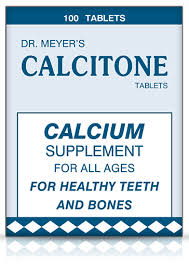Your cart is currently empty!

Single Product
Calcitone tablets calcium supplement 100 tablets
TABLE OF CONTENT What Is Calcitone tablets calcium supplement 100 tablets? Calcium Health Benefits Calcium Dosage Natural Calcium Sources Who Should Consider Calcium Supplements? Calcium Risks What Is Calcium? Calcium is a mineral thats well-known for its key role in bone health. Calcium also helps maintain heart rhythm, muscle function, and more. Because of its health benefits, calcium is one…
Description
What Is Calcium?
Calcium is a mineral thats well-known for its key role in bone health. Calcium also helps maintain heart rhythm, muscle function, and more. Because of its health benefits, calcium is one of the best-selling supplements in the U.S.
Health Benefits Of Calcitone tablets calcium supplement 100 tablets
Calcium is key to growing new bone and keeping the bone you have strong. Calcitone tablets Calcium supplements are standard for treating and preventing osteoporosis — weak and easily broken bones — and its precursor, osteopenia.
Calcium has many other uses. It’s an ingredient in many antacids. Doctors also use it to control high levels of magnesium, phosphorus, and potassium in your blood. There’s good evidence it can help prevent or control high blood pressure. It may also ease PMS symptoms and play a role in preventing certain cancers.
Some research shows that calcium with vitamin D, for instance, may help protect pre-menopausal women from breast cancer. Calcium also has been studied as a weight loss aid. But so far, these studies have been inconclusive.
The people most likely to have too little calcium are postmenopausal women. Since dairy products are one of the most common sources of calcium, people who are lactose intolerant or vegan may not get enough, either.
Calcium Dosage
The Institute of Medicine has set dietary reference intake (DRI) and recommended daily allowance (RDA) standards for calcium. Getting this amount from the food you eat, with or without supplements, may be enough to keep your bones healthy. Doctors may recommend higher doses.
|
Category
|
Calcium: (RDA)
|
| 0-6 months | 200 mg/day |
| 7-12 months | 260 mg/day |
| 1-3 years | 700 mg/day |
| 4-8 years | 1,000 mg/day |
| 9-18 years | 1,300 mg/day |
| 19-50 years | 1,000 mg/day |
| 51- 70 years | 1,200 mg/day (women) 1,000 mg/day (men) |
| 70+ years | 1,200 mg/day |
Women who are pregnant or breast feeding dont need amounts beyond the recommendations above.
The tolerable upper intake levels (ULs) of a supplement are the highest amount that most people can take safely. For calcium, it’s:
- Infants 0-6 months: 1,000 mg/day
- Infants 7-12 months: 1,500 mg/day
- Children 1-8 years: 2,500 mg/day
- Children/teens 9-18 years: 3,000 mg/day
- Adults 19-50 years: 2,500 mg/day
- Adults over 51 years: 2,000 mg/day
In general, it’s best to take calcium supplements with food. For better absorption, don’t take more than 500 milligrams at one time. Split up larger doses over the course of the day. For your body to make use of calcium properly, you also need to get enough vitamin D and magnesium.


